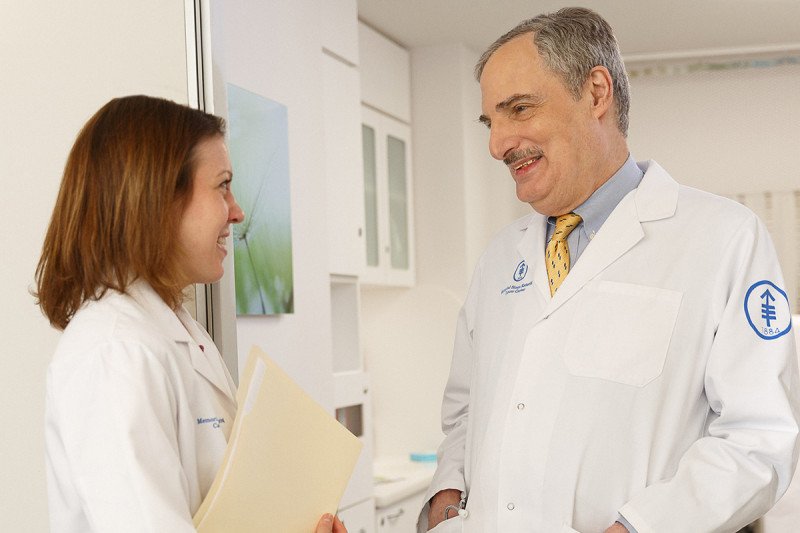
Hematologic oncologists like David Straus help develop a personalized treatment plan for Hodgkin lymphoma that takes into account the type and stage of the disease.
Hodgkin lymphoma is also called Hodgkin’s disease. It may be treated with chemotherapy, a combination of chemotherapy and radiation, immunotherapy, stem cell transplantation, or other treatments.
Is Hodgkin lymphoma curable?
Today, most people with Hodgkin lymphoma can be cured. At Memorial Sloan Kettering, we’ll personalize a treatment plan for you based on the type and stage of your Hodgkin lymphoma.
At MSK, you will be treated by a team of doctors, including medical oncologists, radiation oncologists, radiologists, and more.
See a full list of our lymphoma doctors.
Newly Diagnosed Hodgkin Lymphoma
Chemotherapy & Radiation
If you are newly diagnosed with Hodgkin lymphoma, your doctor may recommend chemotherapy alone or a combination of radiation and chemotherapy.
We will adjust the number of chemotherapy doses or the amount of radiation you receive depending on your needs. Our goal is to maximize your chance for a cure and minimize your exposure to toxic treatments.
With chemotherapy, drugs are taken intravenously (IV) or in pill form to kill rapidly dividing lymphoma cells throughout your body. One of the most common and highly effective chemotherapy regimens used for Hodgkin lymphoma is called ABVD. It is named after the medicines included in the mixture:
- doxorubicin (Adriamycin® and Rubex®)
- bleomycin (Blenoxane®)
- vinblastine (Alkaban-AQ® and Velban®)
- dacarbazine (DTIC-Dome®)
Relapsed and Refractory Hodgkin lymphoma
If you have Hodgkin lymphoma that doesn’t get better after the first treatment, it is called refractory. There are a number of treatment options we may recommend for refractory lymphoma or lymphoma that has returned (relapsed). These include chemotherapy, radiation, novel drugs, and stem cell transplantation.
Experts at MSK have led efforts to gain FDA approval of lifesaving and novel treatment approaches for relapsed and refractory Hodgkin lymphoma.
One such treatment is brentuximab vedotin (Adcetris®). The FDA approved this drug for Hodgkin lymphoma in 2011. It binds to a protein found on the surface of Hodgkin lymphoma tumor cells and kills the cells.
Immunotherapy for Hodgkin Lymphoma
Other new treatments are the immunotherapy drugs nivolumab (Opdivo®) and pembrolizumab (Keytruda®). They are both checkpoint inhibitors, which block specific proteins on the surface of T cells. Normally your body’s immune system uses T cells to help fight the growth of cancer in your body. Checkpoint inhibitors release a natural brake on the immune system, allowing the T cells to attack the cancer.
MSK’s researchers have played a pioneering role in the development and testing of immunotherapy drugs for Hodgkin lymphoma. In fact, our researchers led the international clinical trials that led to the approval of nivolumab and pembrolizumab for patients who have exhausted all other treatments.
Stem Cell Transplantation for Hodgkin Lymphoma
Stem cell transplantation can cure Hodgkin lymphoma that has come back after initial therapy. In particular, an autologous stem cell transplant, which uses a patient’s own stem cells, is often recommended. Memorial Sloan Kettering Cancer Center (MSK) is one of the most experienced centers in the world in blood and marrow stem cell transplantation for Hodgkin lymphoma.
Clinical Trials for Hodgkin Lymphoma
Our researchers are continually running clinical trials to improve treatment options for people with Hodgkin lymphoma. We are studying whether novel drugs can be safely and effectively combined with chemotherapy, radiotherapy, and stem cell transplantation to increase the cure rate for newly diagnosed, relapsed, and refractory Hodgkin lymphoma patients.



